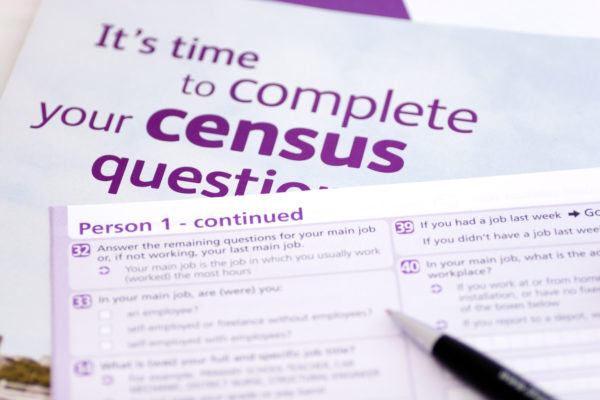AUSTIN, Texas – The Hogg Foundation for Mental Health at The University of Texas at Austin is awarding $2.1 million to the Texas Communities Count initiative. The initiative supports complete count efforts in Texas for the 2020 U.S. census. The primary focus is to aid collaborative approaches that will reach traditionally hard-to-count (HTC) populations, communities and geographic areas throughout the state. The goal is to encourage participation in the 2020 census so that every person in Texas is counted.

Twenty-eight Texas organizations were awarded funds to support any of the following: (1) direct, local, on-the-ground complete count efforts; (2) regionally coordinated complete count efforts; or (3) statewide coordination of these local efforts. Award amounts range from $6,900 to $125,000 depending on the geographical scope and scale of proposed projects. All awardees have laid out strategies that focus on HTC populations and communities.
“This initiative has something for everyone who cares about well-being in our state,” said Octavio N. Martinez, Jr., executive director of the Hogg Foundation and senior associate vice president for diversity and community engagement at The University of Texas at Austin. “It promotes civic engagement and renewal; it is part of a larger effort to ensure that Texans get the resources and political representation to which they’re entitled; and by focusing on hard-to-count areas, it addresses historical patterns of discrimination and inequity.”
The local and regional grant projects include organizations that operate affiliates in multiple regions of the state, or whose proposed projects encompass multiple regions. In total, 58 of the 254 counties in Texas will be touched in some way by the work of these grantees. In addition, the six grants awarded for statewide coordination will further ensure that all of Texas is affected in one way or another by this initiative.
The 2020 Texas Communities Count grantees are:
LOCAL AND REGIONAL
- City of Corsicana
- City of Plainview
- City of Socorro
- Community Action Corporation of South Texas (Alice)
- Community Foundations of Texas (Dallas)
- Deep East Texas Council of Governments (Jasper)
- El Paso Coalition for the Homeless
- Galveston County Food Bank (Texas City)
- Housing Authority of the City of Austin
- International Rescue Committee – Abilene
- International Rescue Committee – Dallas
- McCabe Roberts Avenue United Methodist Church (Beaumont)
- Montrose Center (Houston)
- Project Vida Health Center (El Paso)
- Rural Economic Assistance League Inc. (Alice)
- Rio Grande Council of Governments (El Paso)
- Rio Grande Valley Equal Voice Network (Brownsville)
- Southwest Area Regional Transit (Uvalde)
- Tarleton State University (Stephenville)
- Texas Association of Community Development Corporations (Austin)
- The Health Collaborative (San Antonio)
- University of Texas Health Science Center at Houston
STATEWIDE
- Center for Public Policy Priorities (Austin)
- Disability Rights Texas (Austin)
- Feeding Texas (Austin)
- Meals on Wheels Texas (Austin)
- Texans Care for Children Inc. (Austin)
- Texas Network of Youth Services (Austin)
In addition to determining political representation and district boundaries for every level of government, an accurate and complete census is necessary to ensure fair allocation of federal dollars for resources, services and infrastructure that support Texans’ everyday quality of life.
Four of the 28 organizations — Rural Economic Assistance League, Rio Grande Valley Equal Voice Network, Texas Association of Community Development Corporations and Southwest Area Regional Transit — are being co-funded through a generous $210,000 gift grant to the Hogg Foundation by Methodist Healthcare Ministries of South Texas Inc., a foundation based in San Antonio that serves a 74-county area of south and central Texas.
“As important as the 2020 census is, this initiative has implications that go beyond,” said Crystal Viagran, assistant director of finance and operations for the Hogg Foundation and project lead for the Texas Communities Count initiative. “By encouraging new forms of community collaboration and civic engagement, this initiative accomplishes a key aspect of well-being: supporting the ability of communities to take control of their own destiny.”




